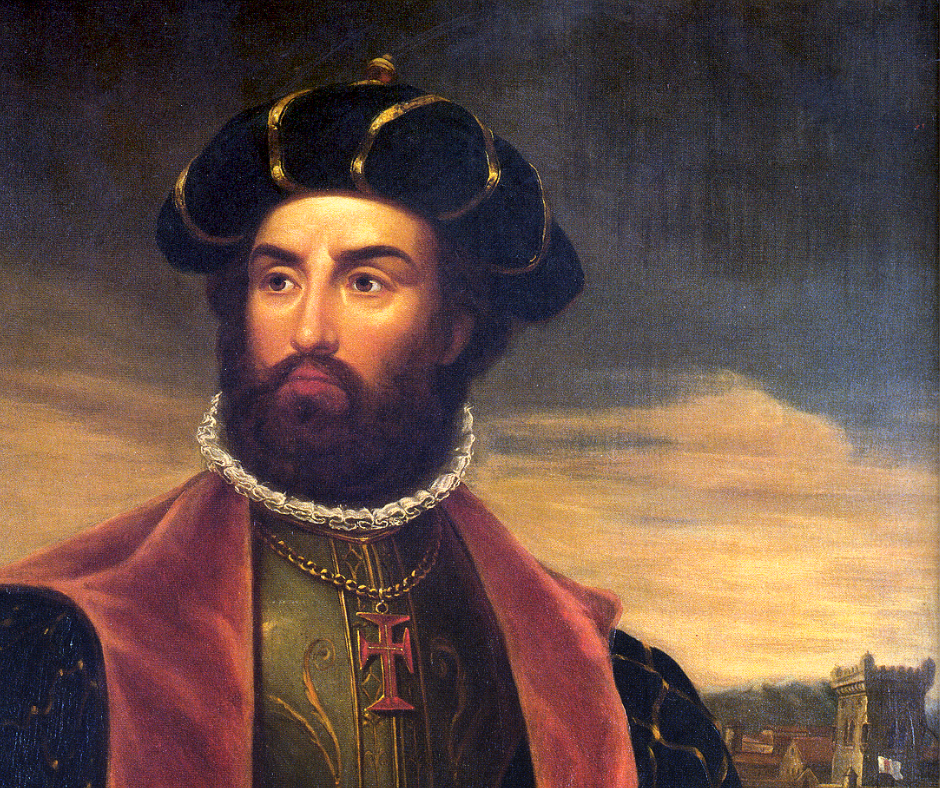Christianity in the Age of Exploration
A guest post by Zeeva Usman

Vasco de Gama | António Manuel da Fonseca, Public domain, via Wikimedia Commons
The Age of Exploration, a transformative period in global history spanning the 15th to the 17th centuries, was shaped not only by the pursuit of new trade routes and territories but also by the interplay of religious fervor and cultural encounters. Christianity played a pivotal role in motivating, justifying, and shaping the consequences of the exploratory ventures undertaken by various European powers.
Zealous Expeditions
The fervent desire to spread Christianity to distant lands and peoples was a central driving force behind many of the expeditions during the Age of Exploration. Explorers such as Christopher Columbus, funded by the Spanish monarchy, embarked on their journeys with a strong sense of religious mission, aiming to bring the Christian faith to what they believed were uncharted territories. Similarly, the Portuguese explorer Vasco da Gama's expedition to India and Ferdinand Magellan's circumnavigation of the globe were imbued with a powerful belief in the divine significance of expanding the reach of Christianity beyond the borders of Europe.
The Missionary Enterprise
The Age of Exploration witnessed a significant surge in missionary activities as Christian religious orders, including the Franciscans, Dominicans, and Jesuits, sent missionaries alongside the explorers. These missionaries, driven by a sense of religious duty and zeal, braved unfamiliar territories and formidable challenges in their efforts to convert indigenous populations to Christianity. Despite facing linguistic and cultural barriers, these missionaries established missions and churches, creating a lasting legacy of Christian presence in the newly discovered lands.
Colonial Expansion and Cultural Assimilation
Christianity played a crucial role in the colonial expansion of European powers during the Age of Exploration. The concept of the "civilizing mission" served as a justification for the colonization of distant lands, with the aim of introducing Christian values and European civilization to what was perceived as 'barbaric' or 'uncivilized' societies. This ideology often led to the imposition of European cultural and religious norms on indigenous cultures, resulting in the suppression of local customs and beliefs.
Cultural Clashes and Syncretism
The encounter between Christianity and indigenous belief systems during the Age of Exploration gave rise to a complex interplay of cultural exchange, adaptation, and conflicts. The introduction of Christianity sometimes led to the suppression of indigenous religions and cultural practices, causing the loss of traditional knowledge and customs. However, in certain regions, a unique blend of Christian and indigenous beliefs emerged, resulting in the development of syncretic religious practices that integrated elements from both traditions, showcasing the resilience and adaptability of religious beliefs in the face of cultural encounters.
Global Dissemination of Christianity
The Age of Exploration facilitated the global dissemination of Christianity as European powers established trade routes and colonial outposts in diverse regions across the globe. The missionary efforts during this period played a significant role in the proliferation of Christian communities beyond the boundaries of Europe, contributing to the development of diverse Christian traditions and practices worldwide. This global expansion of Christianity left a profound and lasting impact on the religious and cultural landscapes of the regions that were touched by the Age of Exploration.
Continued Impact
The legacy of Christianity in the Age of Exploration continues to evoke critical discussions on the implications of religious imperialism, cultural assimilation, and the complex dynamics of power and identity. Contemporary scholars and theologians emphasize the importance of critically engaging with the historical context of missionary activities and colonial expansion, calling for a nuanced understanding of the impact of these endeavors on indigenous cultures and the subsequent narratives of colonial history.
The role of Christianity in the Age of Exploration was multifaceted and complex, with religion shaping the motivations behind exploratory voyages, the establishment of missions, the justification of colonial expansion, and the global dissemination of the Christian faith. While exploration contributed to the spread of Christianity to new territories, it also left a profound legacy of cultural exchange, religious syncretism, and the imposition of European values on indigenous cultures. Understanding this historical context is crucial for comprehending the profound impact of Christianity on the Age of Exploration and its enduring influence on global history and culture.
Zeeva Usman is a content marketing manager at Peter and Petra. She is leading the remote working training program at Second Adam Church and content marketing specialist at Church Marketing Agency. When not working she loves to worship and sing for the Lord Jesus.
Learn more about Columbus and the age of exploration with issue #35: Columbus & Christianity.



